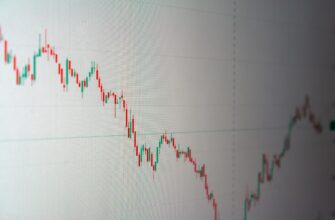Understanding DeFi Yield Taxation in the European Union
Decentralized Finance (DeFi) has revolutionized earning opportunities through yield farming, staking, and liquidity mining. But as EU regulators intensify crypto oversight, understanding tax obligations is critical. Across the European Union, DeFi yields are generally considered taxable income or capital gains, with penalties for non-compliance reaching up to 200% of owed taxes in countries like Germany. This guide breaks down EU tax frameworks, reporting methods, and compliance strategies to keep your crypto portfolio above board.
How EU Countries Classify DeFi Earnings
Tax treatment varies significantly across EU member states, but common patterns emerge:
- Income Tax: Most countries (e.g., Germany, Netherlands) treat staking rewards and liquidity mining yields as miscellaneous income upon receipt
- Capital Gains: Profits from selling yield-generating assets may incur capital gains tax (e.g., France’s 30% flat rate)
- Exceptions: Portugal currently exempts crypto-to-crypto transactions but taxes fiat conversions
- Value-Added Tax (VAT): Generally not applied to crypto transactions following 2015 EU Court of Justice ruling
Key Taxable Events in DeFi
Identify these crucial triggers for tax reporting:
- Receiving staking rewards or liquidity pool tokens
- Claiming yield farming incentives
- Converting earned crypto to fiat currency
- Swapping between cryptocurrencies (taxable event in 19 EU states)
- Receiving airdrops or hard fork coins with market value
Step-by-Step Tax Calculation Guide
Follow this framework to determine liabilities:
- Track Acquisition Value: Record EUR value of crypto when rewards are received
- Document Dispositions: Calculate gains/losses when selling or swapping assets
- Apply National Rates: Germany taxes crypto income at personal rate (14-45%), while Belgium imposes 33% flat tax
- Offset Losses: Most EU countries permit capital loss carryforward (e.g., 7 years in Italy)
- Convert to EUR: Use European Central Bank rates or reputable exchange data for valuation
Country-Specific Compliance Requirements
Notable regulatory approaches:
- Germany: Must report via Annex SO of income tax return
- France: Separate crypto tax schedule in annual declaration
- Spain: Form 720 for foreign-held assets exceeding €50,000
- Nordic Countries: Pre-filled tax forms requiring verification
Proven Tax Optimization Strategies
Legally minimize liabilities with these approaches:
- Utilize tax-free thresholds (€600/year in Czech Republic)
- Time dispositions to trigger losses in high-gain years
- Hold assets long-term for reduced rates (e.g., Austria’s 0% after 1 year)
- Use EU-compliant tax software like Koinly or CoinTracking
- Maintain granular records: wallet addresses, transaction hashes, and exchange statements
Frequently Asked Questions (FAQ)
- Q: Is staking yield taxed twice in the EU?
A: Typically no – taxed as income upon receipt, then capital gains only if sold at profit later. - Q: How are liquidity pool rewards taxed?
A: Most EU states treat them as ordinary income based on EUR value when received. - Q: Do I pay taxes on unrealized DeFi gains?
A: Generally no, except for professional traders in countries like Finland. - Q: Can I deduct DeFi transaction fees?
A: Yes, most countries allow gas fees and exchange costs as deductible expenses. - Q: What penalties apply for underreporting?
A: Varies by country – Germany imposes 10% late fees plus interest, France up to 80% penalties. - Q: Are DAO earnings taxable?
A: Yes, treated as self-employment income in jurisdictions like Ireland.
Staying Compliant in 2024
With the EU’s Markets in Crypto-Assets (MiCA) regulation taking full effect in 2025, tax transparency will increase dramatically. Proactive taxpayers should: maintain real-time transaction logs, leverage API integrations with DeFi platforms, and consult specialized crypto tax advisors. While regulations evolve, one principle remains constant: documented compliance is the cornerstone of sustainable DeFi participation in the European Union.








